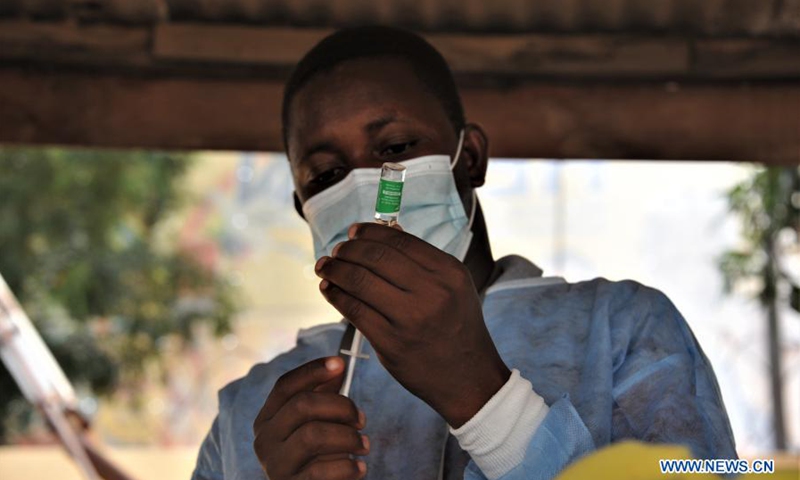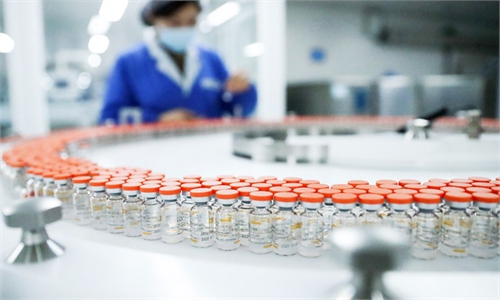Global 'immunization gap' still exists despite growing vaccine production: Boao Forum

A nurse prepares to administer the COVID-19 vaccine at a hospital in Accra, Ghana, on March 2, 2021. Photo: Xinhua
Despite the fact that production of COVID-19 vaccines has expanded vigorously around the world, many countries still have an urgent need. The key issues to be addressed currently are vaccine accessibility and affordability, areas where China has done a good job and has become a leader in the world by committing to make vaccines a global public good, experts said at a panel themed "Narrowing the Vaccine Gap" at the 2022 Boao Forum for Asia on Wednesday.
According to data provided by Our World in Data, 11.48 billion doses have been administered globally, surpassing the entire world population. However, "one third of the world's population is yet to see a single dose of vaccine, including 80 percent of the population of Africa […] And that compares to high income countries where 80 percent have received the vaccines," Gordon Brown, fundraising envoy of the World Health Organization (WHO) and former UK prime minister, said at the panel.
"It is shocking that only 30 percent of healthcare workers and only 20 percent of the most vulnerable population, aged 60 or older, have been vaccinated in low income countries," said Brown.
The chairman of Astra Zeneca, Leif Johansson, also said at the panel that while the production of vaccines has exceeded demand, the accessibility of vaccines remains a pressing issue that needs to be continuously addressed.
As many at the forum recognized China's major contribution to fill the "immunization gap," Deng Boqing, Vice Chairman of the China International Development Cooperation Agency, remarked that China has provided more than 2.2 billion doses of vaccines to more than 120 countries and international organizations.
In addition, China has also transferred technology and cooperated in the production of vaccines in more than 20 countries, building a production capacity of 1 billion doses overseas. In the next three years, China will provide $3 billion to support epidemic prevention and control work as well as the economic and social recovery in developing countries.
China has also helped countries who lack the technical capacity to inoculate its population to achieve better vaccine efficacy.
Margaret Chan Fung Fu-chun, former WHO Director-General, said that the world needs to help developing countries to build production capacity.
"They want production capacity, not donations of money. That is not their ultimate goal. Their ultimate goal is being able to build their own health system, manage their health problems, and with the help of other countries, build their vaccine production capacity," she said.
"China is doing its best, not only to protect its own people, but also to make a huge contributions," said Chan, adding that "unfortunately, the window of opportunity created by China was lost by some countries."
In defiance of the "immunization gap," guests at the panel called for further international cooperation. Brown said that changing the status quo requires advancement of vaccination programs on every continent, especially for people in low- and middle-income countries, and that relevant parties should provide these countries with all the equipment, facilities and supplies they need.
China is willing to contribute to the issue of global vaccine accessibility together with developed countries, international organizations and the rest of the international community, Deng said.

